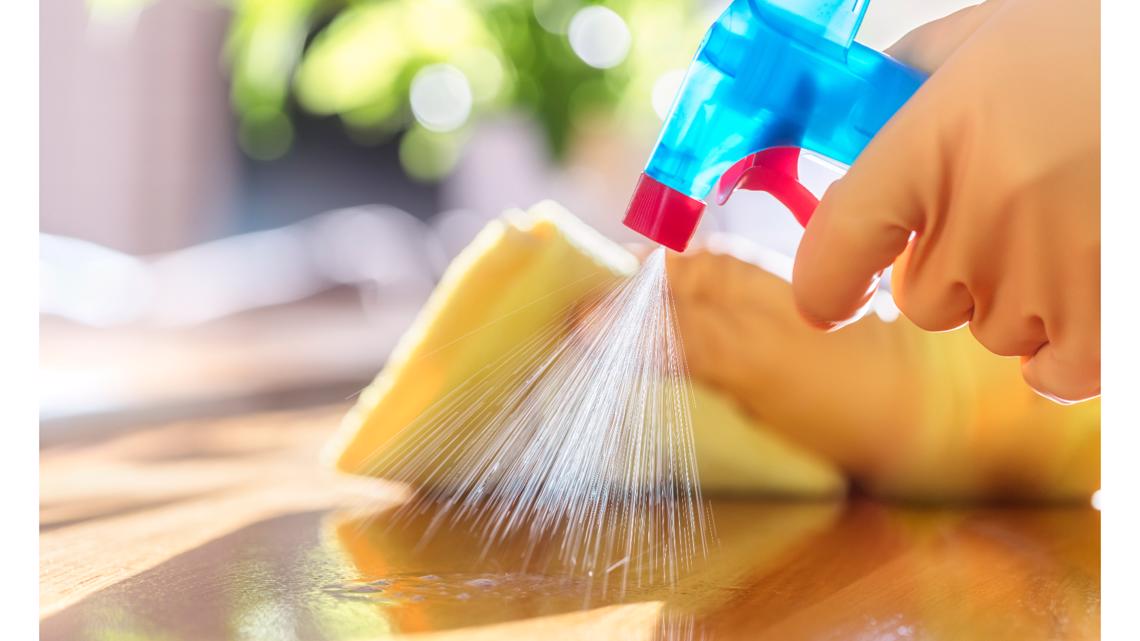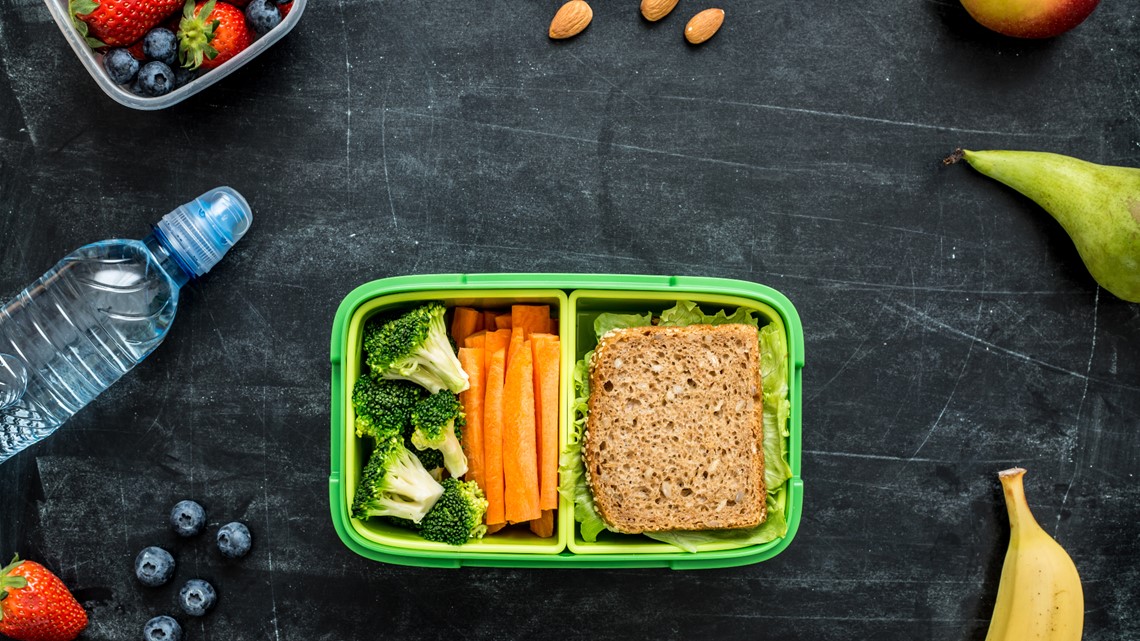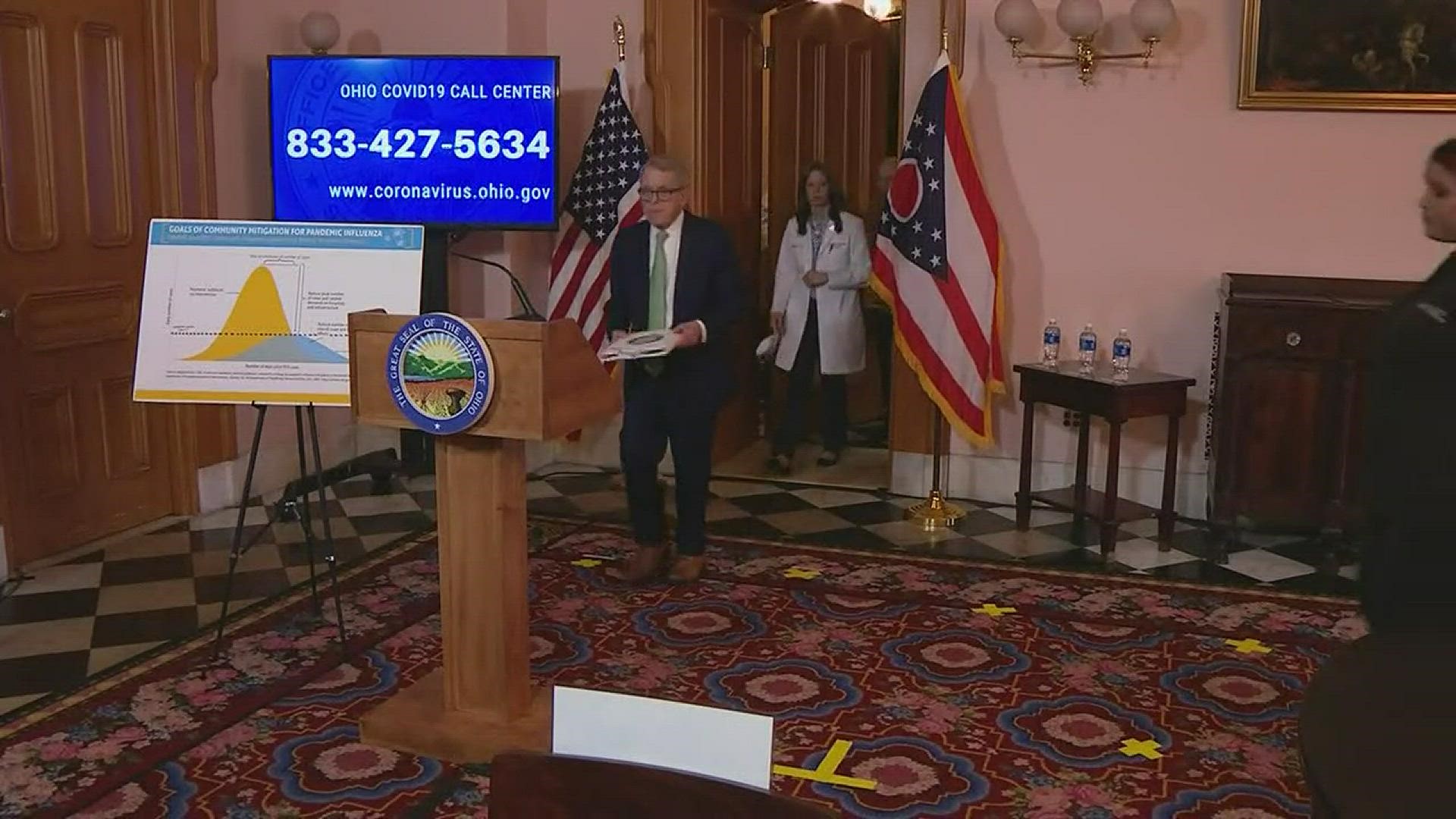OHIO, USA — With schools and businesses closing down, and recommendations to stay at a distance from friends and family, Americans are working to find a new normal as we work to combat the spread of coronavirus.
The Ohio Department of Health has a number checklists to help people maintain a sense of normalcy and take control in a time when things seem to be constantly changing.
Here are a number of resources aimed to help you navigate everything from grocery shopping, self-isolation, discussing the virus with children and more.
TIPS FOR FAMILIES AND INDIVIDUALS
Top 5 Things You Can Do to Prepare for COVID-19
Ohio Department of Health Director Amy Acton, M.D., MPH, strongly recommends that all families and individuals immediately take a number of actions to keep yourselves and others safe.
Click here to find a list of the top five things Acton suggests you do to prepare for the coronavirus.
Household Checklist
The Ohio Department of Health offers a number of guidelines to prepare your household for an outbreak of any infectious disease.
Residents are encouraged to stay calm and prepare, seek out accurate information and be kind, staying mindful of actions that could perpetuate any discrimination or stigma associated with COVID-19 or other infectious diseases.
Here is a list of best practices in terms of prevention and planning to combat the spread of coronavirus in your home.
Top Things To Do When Avoiding Large Gatherings
Health Director Amy Acton, M.D., MPH, has issued an order prohibiting mass gatherings in the State of Ohio to prevent the spread of COVID-19.
The order defines mass gatherings as an event that brings together 50 or more people in a single room or space at the same time. Examples of such events are parades, fairs, and festivals. Examples of such rooms/spaces are auditoriums, stadiums, arenas, large conference rooms, meeting halls, theaters, and other confined indoor or outdoor spaces.
For more information on the order and best practices from the ODH on ways to avoid large gatherings of people, click here.
Top 10 Things To Buy To Prepare for COVID-19
In case you do become infected, Health Director Amy Acton suggests preparing your home with items to last you two weeks.
If you are unsure of what to buy, the ODH has a helpful list household items to prepare for a possible quarantine or isolation due to COVID-19.
Top 5 Ways To Disinfect If Everyday Supplies Run Out


If everyday cleaning supplies were to run out of stock, there are still plenty of options to keep your home clean. Ohio Department of Health Director Amy Acton, M.D., MPH, offers alternatives for preventive cleaning against COVID-19.
Top Recommendations If You Get Sick
Health Director Amy Acton, M.D., MPH, strongly recommends that all Ohioans immediately take number of actions if they are feeling sick.
You should seek prompt medical attention if you develop emergency warning signs for COVID-19. In adults, these can include:
- Difficulty breathing or shortness of breath
- Persistent pain or pressure in chest
- New confusion or inability to arouse
- Bluish lips or face.
This list is not all inclusive. Please consult your healthcare provider for any other severe or concerning symptoms.
For more recommendations on what to do if you are ill and when to reach out to healthcare provider, click here.
Top 5 Things You Can Do to Help Someone Who Is Isolated or Quarantined due to COVID-19
As the pandemic unfolds, the words "isolation" and "quarantine" have been used continually. There is a difference between the two.
Isolation separates sick people with a contagious disease from people who are not sick.
Quarantine separates and restricts the movement of people who were exposed to a contagious disease to see if they become sick.
Ohio Department of Health Director Amy Acton, M.D., MPH, suggests a number of activities to help show kindness to any friends, family or others who may be isolated or quarantined due to COVID-19.
Top 5 Things You Can Do If You Are Isolated or Quarantined
If you do get sick and are required to be isolated or quarantined, there are a few actions that are strongly recommended by Health Director Amy Acton.
To look over a list of the top five things leaders with ODH suggest, click here.
Coping With COVID-19 Restrictions
With encouragement from both Dr. Acton and Ohio Gov. Mike DeWine, Ohioans are practicing "social distancing." Social distancing is a practice that is taken that increases the physical space between people to help slow the spread of viruses.
Some ways that people are already practicing social distancing include working from home, closing schools and postponing or canceling mass gatherings. The recommended distance to stay away from others is six feet.
Additionally, many schools and businesses have been closed and events have been canceled. It may feel isolating in this time. However, ODH has plenty of tips to help cope as we distance ourselves to prevent the spread of COVID-19. Click here for a list of tips to help you cope.
Family Activities to Do During COVID-19
Ohio schools have been closed due to the coronavirus pandemic. And although many business have closed, there are still a number of options for families to have fun together. And don't forget, we can still get outside, get fresh air and enjoy some sunshine.
Here is a list put together by the ODH of activities families can do while schools across the state are shut down.
School Meals COVID-19 Checklist
During Ohio’s coronavirus-related ordered school-building closure, many schools are ensuring students continue to receive nutritious meals.
Some districts and schools can provide meals to all students in their communities, while others can provide meals only to qualifying students.
Ohio Department of Health Director Amy Acton, M.D., MPH, is working closely with the Ohio Department of Education to help students receive nutritious meals during the ordered school-building closure period.
For more information on what the ODH is doing to ensure students are fed, click here.
RELATED: United Way to help provide daily meals for Findlay students through statewide school closures


COVID-19 Checklist for Pet Owners and Veterinarians
If you own a pet, you may be worried about them getting sick. According to the CDC, there have not been any reports of pets or other animals becoming sick with COVID-19. However, further studies are needed to understand if and how different animals could be affected by COVID-19.
To make sure you and your pet stay safe, here are some suggestions from ODH.
TIPS FOR THE IMMUNOCOMPROMISED AND THE ELDERLY
COVID-19 Checklist for Those with Asthma
People with asthma are at a higher risk of becoming ill from contracting COVID-19, according to the Center for Disease Control.
However, there are a number of recommendations put forth by ODH for those with asthma to develop a plan to combat the virus.
Click here to see what Health Director Amy Acton, M.D., MPH, recommends.
COVID-19 Checklist for Older Ohioans and Individuals with Chronic Health Conditions
Older Ohioans and people who have underlying chronic and/or severe medical conditions such as asthma; diabetes; or heart, lung or kidney disease appear to be at higher risk for more serious illness from COVID-19.
Health Director Amy Acton, MD, MPH, strongly recommends that all older Ohioans and people who have severe chronic medical conditions immediately take a number actions.
To see what she suggests, click here.
TIPS FOR BUSINESSES AND ORGANIZATIONS
COVID-19 Information and Checklist for Businesses/Employers
Leaders at the Ohio Department of Health have compiled a list of resources for businesses impacted by the coronavirus pandemic.
For information on enhanced unemployment aid, support for small businesses and non-profits, what to do when employees come back to work and more, click here.
COVID-19 Checklist for Childcare Programs
Governor Mike DeWine has issued an order relaxing the teacher/student ratio currently required for childcare programs and preschools.
He urges parents to keep their children home from these facilities if they are economically able to do so and encourages parent to not leave their children in the care of a caretaker over the age of 60.
Ohio Department of Health Director Amy Acton, M.D., MPH, strongly recommends that all childcare programs immediately take a number of actions.
Click here for a list of recommendations from ODH.
COVID-19 Information and Checklist for Restaurants and Bars
Ohio Department of Health Director Amy Acton, MD, MPH, has ordered all restaurant dining areas and bars close to in-house patrons, effective at 9 p.m. on March 15, 2020. Carry-out and delivery services can continue, with carry-out lines maintaining 6 feet between patrons when possible. The order does not apply to food service in healthcare facilities or catering at weddings and funerals.
Here is a list of recommendations from Acton on best practices for restaurants during this time.
COVID-19 Checklist for Faith-Based and Community Organizations
While religious gatherings are exempt under DeWine's ban on mass gatherings, many have taken the steps to either cancel services, move to online options or simply pare down on the number of gatherings scheduled.
Religious organizations are not required to shut down, but the Ohio Dept. of Health has a list of actions these groups should be taking to help combat the spread of coronavirus.
Click here for a list of recommendations for faith-based and other community organizations.
COVID-19 Checklist for Colleges and Universities


Most colleges and universities in the state have already made the switch to online learning per recommendations by the CDC and Ohio Gov. Mike DeWine.
However, there are a number of ways these institutions can make sure they are keeping students and faculty safe, while still providing much-needed resources.
COVID-19 Checklist for Home Healthcare and Long-term Health Facilities
The people working in healthcare are truly on the front lines, working to keep the community safe and healthy.
However, it is important for those of you in the industry to protect yourselves as well!
The Ohio Dept. of Health has a list of guidelines prepared for industry professionals to protect themselves and patients amid concerns over the coronavirus.
Click here for more information on in-home healthcare.
If you work at a long-term health facility, click here.
COVID-19 Information and Checklist for K-12 Schools
Governor Mike DeWine has closed all school buildings in Ohio, including preschool programs licensed by the Ohio Department of Education, for three weeks beginning at close of school on Monday, March 16, 2020. Internet- or computer-based schools should continue operations according to their regular calendars.
COVID-19 Checklist for Pharmacies
Health Director Amy Acton has put together a top 10 list actions for pharmacies to help combat the spread of the virus.
It is important that people in the industry protect both themselves and patients.
For a list of best practices, click here.
Facts not fear: Putting COVID-19 into context
WTOL 11’s coverage of the coronavirus is rooted in Facts, not Fear. Visit wtol.com/coronavirus for comprehensive coverage, find out what you need to know about northwest Ohio and southeast Michigan specifically, learn more about the symptoms, and keep tabs on the cases around the world here. Have a question? Text it to us at 419-248-1100.
Protect yourself from coronavirus
- Cover: Cover your mouth and nose with a tissue when you cough or sneeze.
- Dispose: Throw used tissues in a lined can.
- Wash hands: Wash your hands often with soap and water for at least 20 seconds, especially after blowing your nose, coughing, or sneezing; going to the bathroom; and before eating or preparing food.
- Hand sanitizer: If soap and water are not readily available, use and alcohol-based hand sanitizer with at least 60% alcohol, covering all surfaces of your hands and rubbing them together until they feel dry.
- Avoid touching: Avoid touching your eyes, nose, and mouth with unwashed hands.

